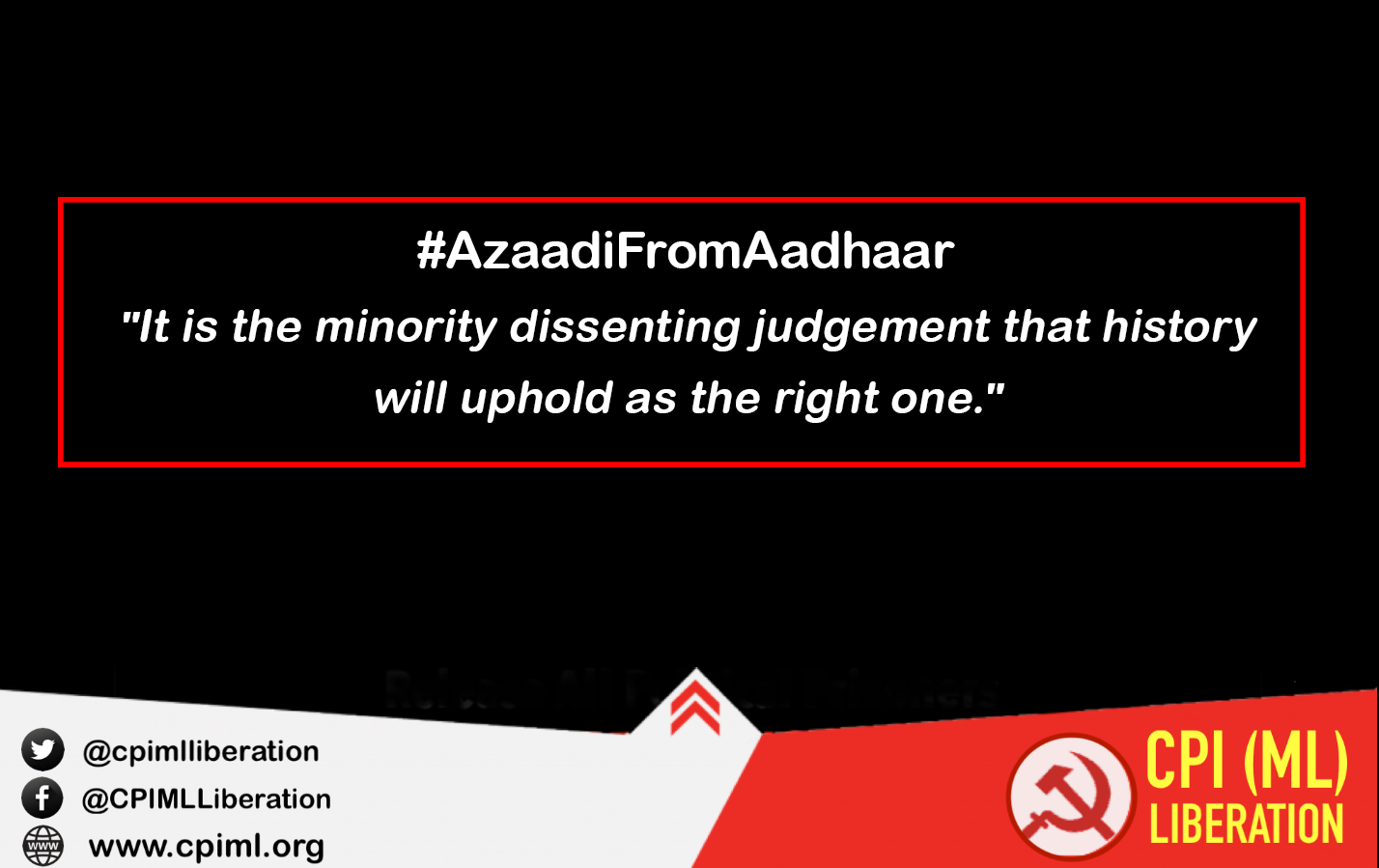On Aadhaar Verdict

The Supreme Court, in a majority verdict on September 26, 2018, upheld the Constitutional validity of Aadhaar and the requirement of Aadhaar linkage for beneficiaries of welfare schemes. The verdict came a year after 11-year old Santoshi of Jharkhand died of starvation, crying for rice, after her ration card failed to be linked with Aadhaar.
The SC verdict is deeply disappointing because it has validated Aadhaar’s use as a tool of exclusion of the poorest Indians from welfare schemes including PDS and MNREGA. The SC failed to recognise food and work as entitlements and rights from which no one should be excluded. It has ignored the vast evidence that 27% of people are denied entitlements in spite of being enrolled in Aadhaar . Authentication has proved difficult due to network failures, as well as changes in biometric indicators such as fingerprints or irises, thanks to manual labour, old age, or injuries. Further, crores of people have not been able to enrol in Aadhaar due to biometric errors, and are thus subjected to a civil death.
We welcome the dissenting verdict by Justice Chandrachud, which struck down the Aadhaar law on the grounds that “(the) entire Aadhaar programme, since 2009” suffers from “Constitutional infirmities and violations of fundamental rights”.
It is unfortunate that the majority verdict upheld the passage of the Aadhaar act as a Money Bill to circumvent its passage in the Rajya Sabha, even though the dissenting verdict described this as a “fraud on the Constitution.”
Even though the majority verdict has struck down the constitutionality of certain sections of the Aadhaar Act, it has done so without undoing the damage that is caused. For instance, the verdict strikes down Section 57 - which allowed private companies to demand Aadhaar numbers - as unconstitutional, but ignores the fact that crores of Aadhaar numbers have been collected and linkages made, which can continue to be utilised for the profiteering of private companies. Neither does the judgement allow for people to opt-out of a scheme, where data was collected without proper prior and informed consent. Also, in cases where the Government itself has outsourced its responsibilities to private entities, the latter will gain access to the Aadhaar database, thus putting sensitive private data in the commercial domain.
The judgment also fails to address concerns for national sovereignty, raised by the fact that UIDAI has signed contracts with L-1 Identity systems a company known to be close to the CIA. This allows L-1 to have access to our biometric data, since L-1 systems owns the sourcecode for the biometric database.
The majority verdict invalidates linking of bank accounts and phone connections to Aadhaar, but contradicts this by retaining linking of Aadhaar to the income-tax Permanent Account Number (PAN).
It is the minority dissenting judgement that history will uphold as the right one.
- Central Committee, CPI(ML)
Charu Bhawan, U-90, Shakarpur, Delhi 110092
Phone: +91-11-42785864 | Fax:+91-11-42785864 | +91 9717274961
E-mail: info@cpiml.org







